EXCLUSIVE: President of Vatican’s Bambino Gesu Children’s Hospital
Mariella Enoc Talks to Exaudi About Her Life and Professional Experience
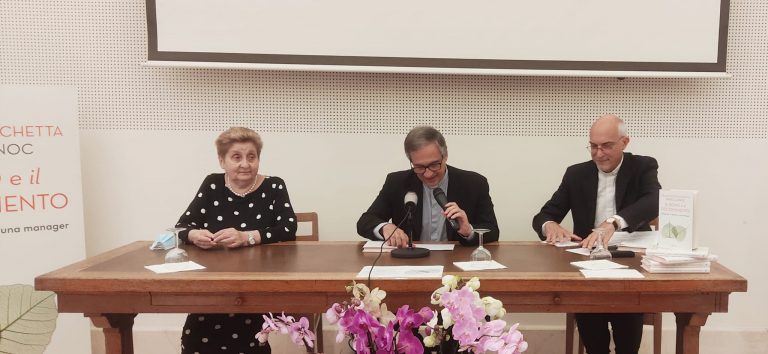
The presentation of the book “Gift and Discernment,” published by Rizzoli, was the occasion of Exaudi’s exclusive interview with Mariella Enoc, President of the Board of the Bambino Gesu Paediatric Hospital since February 2015, a responsibility that was confirmed to her last January until 2024. The book is a conversation with Jesuit Father Francesco Occhetta, in the Manager’s Piedmontese home. Both are originally from Novara.
Dr. Enoc’s home looks out on Lake Maggiore, not far from Stresa, The house was also the home of the parents of the Bishop Emeritus of Novara, Monsignor Aldo Del Monte, who spent the last years of his life there. Both Dr. Enoc and Father Occhetta were very close to him. The book “is not a biography,” said Father Occhetta during the presentation, which was moderated by Father Dario Edoardo Viganò, but a “necklace of pearls, woven one after the other with several levels: spiritual, human, ethical, anthropological, social <and> managerial.”
Mariella Enoc, before arriving at the Bambino Gesù you did many other things, especially in secular environments where you never concealed your being a practicing Catholic, and you were always very esteemed. How is a Manager’s relationship with the faith?
I am a person, so my faith and what I do are the same thing. What I do is inspired by my faith. There is no diversity because my faith also helps me to make some choices. That’s why the book’s title is Gift and Discernment. I have always been a Manager in my way, also when I worked in the profit sector, for multinationals listed on the Stock Exchange. I always said to the shareholders that, if they wanted me, I set the conditions. So I never had relationship problems between the living of the faith and the living of my profession.
What is it like to work in contact with the Holy Father?
I am profoundly in tune with him, with his teaching, so I have also given a bit of this inspiration to the Bambino Gesù: first of all, great attention to the Hospital’s sustainability. Hospitals must be sustainable. The Pope also reminds me of this. This sustainability then helps to innovate, to engage in research, and also for solidarity. My first task is to make it sustainable to be able to do what I want the Hospital to do, in keeping with the mission it has. And, I must say, it is challenging. But I’ve learned something else from the Holy Father.
What?
In face of suffering, it’s necessary to care for the whole man, who has a spiritual dimension, even if he is of a different religion or a non-believer. And this is not done by saying “pretense” phrases of compassion. When the Pope came to visit our premises in Palidoro, in three hours I never heard him say words such as “courage, you’ll see . . . ‘ Coming out of a room I explained to him that the parents didn’t want to accept their son’s illness. And he answered me: ‘because — is it easy to accept it?’ To communicate empathy means to be one with the other.
How was the idea of this book born?
It was a hoax of Father Occhetta (she answered laughing). As we have been profound friends for many years (we are of the same diocese, then we got a bit lost and we met again when we came to Rome), in the summer at my home I was talking (or better, he made me talk) and he wrote. Then, when the book was born I had many difficulties in letting it be published; there was a strong resistance for some months.
He was very much a gentleman. He said to me ‘it’s a gift I give you; don’t worry if we don’t publish it.’ Then there was a bit of a push on the part of other persons, and I accepted. But it cost me much difficulty; by temperament, I don’t like to expose myself . . . I have done many things but in a rather reserved way. On one hand, it was easy because Father Francis is a person of reference for me, also spiritual, but to see it written was more complicated. I spoke with the group of his young people. They said I should consider it a testimony of a long life and, therefore, this modesty is a bit excessive. It’s a modesty that we Catholics have …”
That is?
Deep down we think that humility is to be covered . . . I acknowledge in this a bit of lack of positivity of Catholic education (she answers laughing again).
Solidarity is one of the Hospital’s “missions.” Can you give us an example also in the light of the pandemic we are living?
In this year and a half, we’ve set up, together with the Communications Manager, a platform in five languages so we have been able to continue the formation of the staff in developing countries, be it with words or with images. In Arabic, we are now forming some 150 nurses of five Libyan hospitals, in collaboration with WHO. There were many foreign nurses in Libya, who left with the war and they need to form them. As soon as it’s possible we will undertake a mission or they will come to us, as we do for the Chinese or in some cases with Tanzania. I must say that the use of this platform was extremely important because we never stopped engaging in formation. The value of digitalization is to invest also in this.
Catholic health isn’t doing very well.
I suffer a lot seeing Catholic hospitals so badly reduced. Together with education, they are a great gift of the Church that we are forgetting, and not only in Italy. In Nicaragua, for example, there is a hospital of the Holy See, which, perhaps, will pass to the government, but at least it won’t close. It’s necessary to rediscover the spirit of what we do. Hospitals have chased the public into doing more activities, but it’s not enough.
I’m thinking of psychiatric patients. They are not taken care of sufficiently. It’s true that it’s a care that yields little, but it’s necessary to take charge of it. It’s good to say that we have the elderly at home but we can’t impose it, otherwise, it becomes ideology. One treats knowing the persons, understanding what they need. To save a charism is not to go back to the old but to re-propose it today. The Cottolengo was doing very well in the 19th century, but what would it do today? I defend the Bambino Gesu tooth and nail; we are making enormous efforts to demonstrate that it is sustainable. It’s a challenge of which I am also, perhaps, too proud. But I can’t lose it, I have it too much at heart.”
To conclude, Mariella Enoc and Africa: Your dream was to go and live there.
I have always sought an encounter with the poor, not only the materially poor. There are so many poverties. To go to Africa is, perhaps, the only thing I would have chosen, but it wasn’t possible for me. When he returned from Bangui, the Pope offered me again a great opportunity. He asked me to do something and he gave us the resources. The dream of Africa remains it’s what I had at 71 when I was called to Rome. Once again it was not granted to me, something else was asked of me. I leave it as a consignment. Africa is an unloved Continent, exploited, which we take care of with benevolence, where the children that die of hunger serve to move consciences, a very rich and very exploited Continent, that we have liked but not loved. Charity doesn’t need protagonists but witnesses.
Translation by Virginia M. Forrester
Related
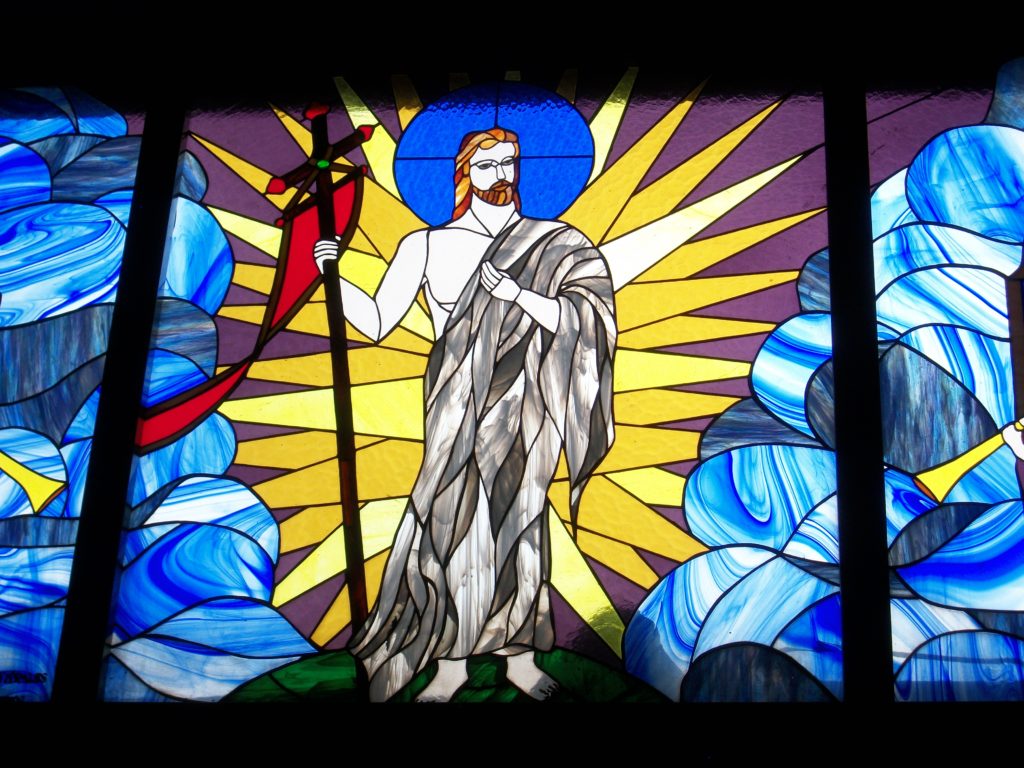
Easter: Mystery of Freedom
Carlos J. Gallardo
20 April, 2025
5 min
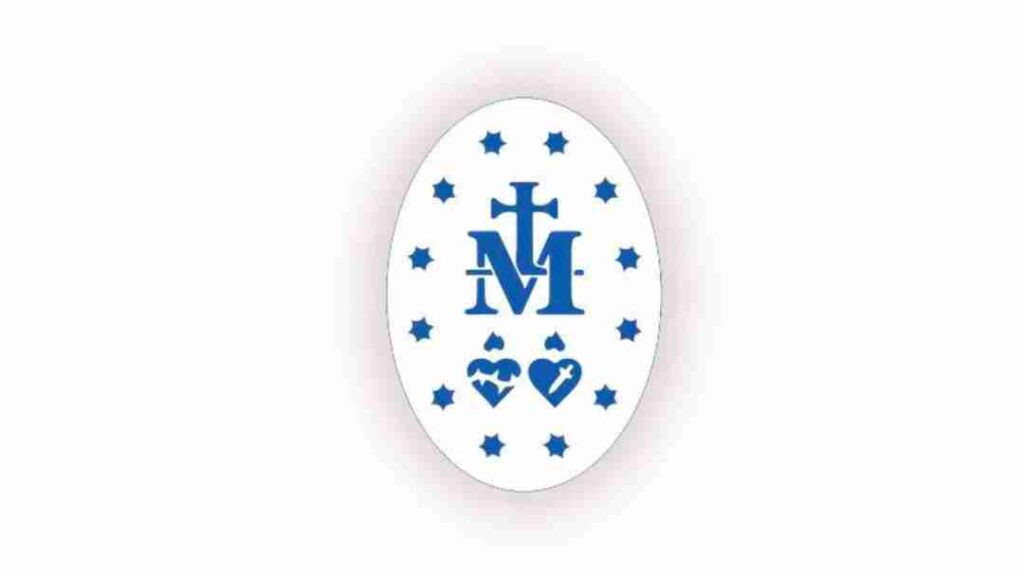
Thy will be done
Albert Cortina
17 April, 2025
35 min
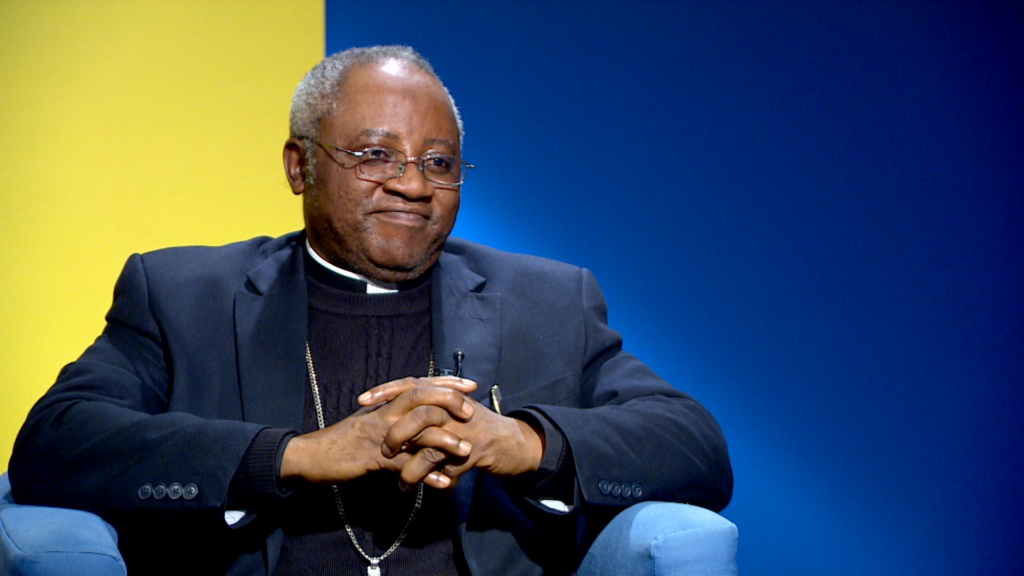
Despite hardships, Christianity is growing “astronomically” in northern Nigeria
Ayuda a la Iglesia Necesitada
10 April, 2025
3 min
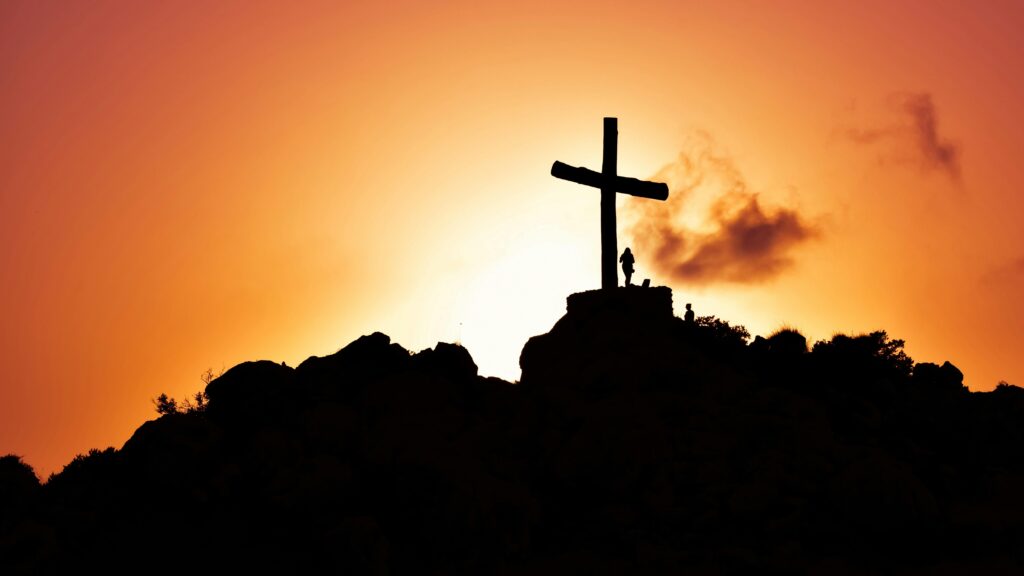
“Christianity, a Powerful Engine of Social Transformation”
Exaudi Staff
09 April, 2025
3 min
 (EN)
(EN)
 (ES)
(ES)
 (IT)
(IT)

